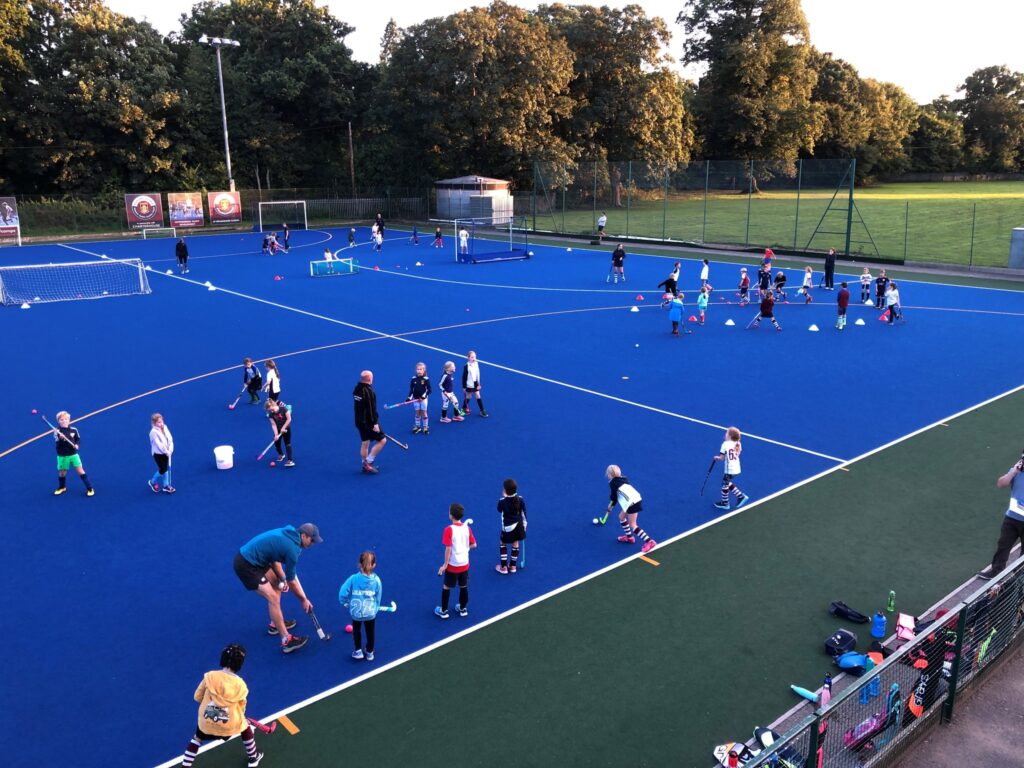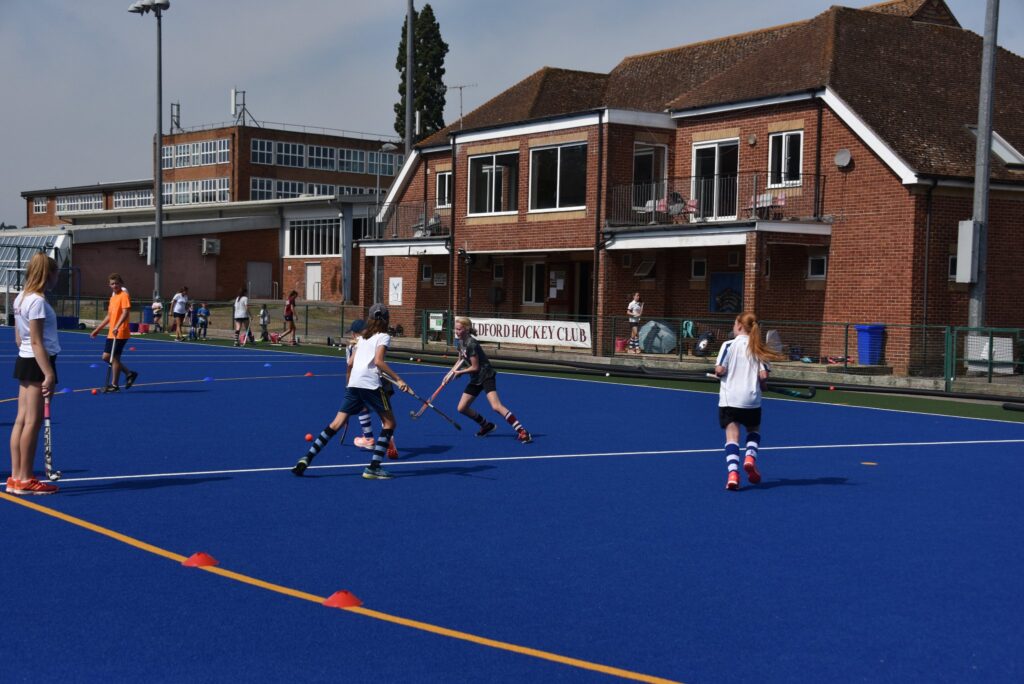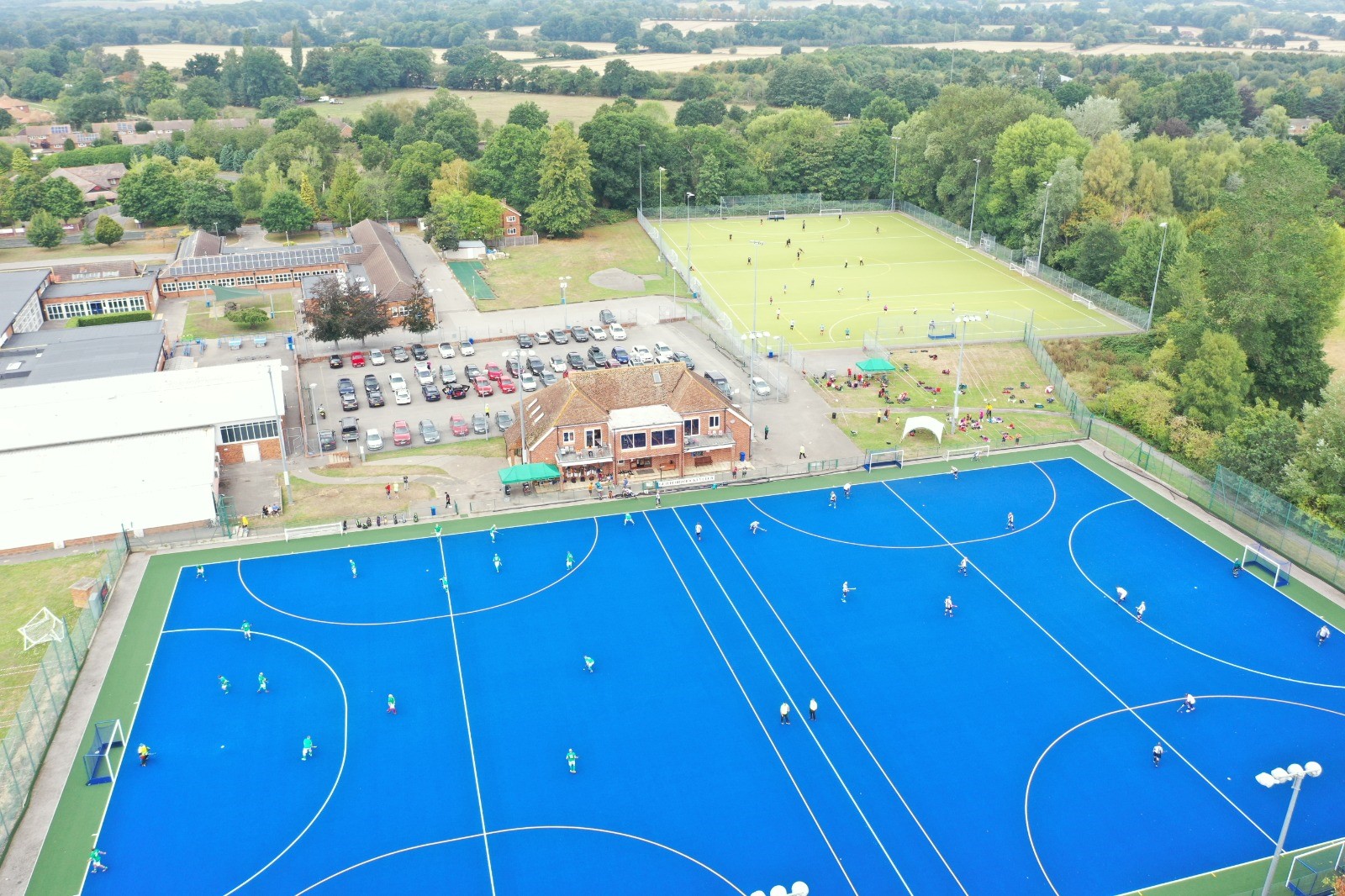Matthew Johns speaks to former international Dan Fox on an outreach programme making serious headway
Dan Fox is on a mission. By hook or by crook, the GB Olympian and now director of hockey at Guildford HC wants every school kid to try hockey in the club’s borough. “A connection with local people is really important to sustain what we’re doing,” he says.
Up until 2016, Fox was a professional hockey player. He represented Great Britain in both the London and Rio Olympics and was part of the England team that won a bronze medal at the 2014 Commonwealth Games in Glasgow.
These days, Fox runs the state school outreach ‘Project 2024’. The inspiration behind the programme came when the club realised that not many state schools were getting involved in hockey, for a variety of different reasons.
“The idea is that we are delivering hockey in 24 local schools by the year 2024,” says Fox.
“The model is that we go into local primary schools, deliver free curriculum hockey for one year to prove the concept, and then ask the schools to use their sports premium budget to fund hockey.
“We initially raised £16,000 through fundraising appeals through appeals to membership, the local area, and some generous charities which matched their funding.”
The project is mainly targeting primary school children in years five and six. The thought process behind this is that children are most enthusiastic and willing to try new things at this age, as well as it being a good age for children to join a club.
“If they get a taste for it, there’s that link between what they’re doing in school and their local club, so they can carry on their enthusiasm and passion for it.”
When the coaches visit schools across the Surrey area, they encourage the children to come down to Guildford HC to give it a go.
While some schools did offer hockey, it was usually delivered by multi-sport companies who don’t have coaches that specialise in the sport or played a different version of the sport.
“The schools have bought into the concept in a big way. They often have their sport delivered by multi-sport companies” who, Fox admits, “do a good job”.

“But they do a bit of handball one week, bit of dodgeball the next, then soccer the next,” adds the GB Olympian. “But where they struggle is, if you like your handball session, where do you carry on playing? With hockey that’s a really nice link.
“We introduce tournaments, festivals, fixtures, so they get a taste of playing against other schools, which is really difficult for primary schools in particular to resource with limited staffing and limited facilities.”
The results speak for themselves, with 22 schools already signed up to free hockey coaching (only two off the target with over a year to go). Even more impressive when you consider the impact that Covid-19 would have had. A large percentage of these schools have also signed up for the following year as well.
The focus has mainly been on primary schools, but there has also been an emphasis on quality of coaching in other schools. They have done some ‘coach ed’ making sure that PE teachers are made to feel confident in delivering hockey lessons, where they would not have beforehand.
And although the coaching is free, the benefits, both financial and non-financial, trickle down to the club which have had a noticeable effect.
“Being tied into local community has loads of different benefits, from more people coming to watch games on Saturday, to parents volunteering helping out, and securing use of local venues for club matches and events.”
“Guildford is a big organisation. We have 850 juniors, 17 adult teams, a flyer programme, a school’s programme, a talent programme. We are a big organisation which is great, because it means lots of stakeholders on governing bodies of schools etc, but also means a lot of facilities. Friday night six pitches, Saturday three pitches. Having that connection with local people is really important to sustain what we’re doing”.
One of those benefits that this scheme creates is job opportunities, enabling skilled coaches to work professionally and giving them that work-life balance. “It’s a real problem if you want to be a hockey coach but don’t want to work five nights a week and all weekend. How do you make it work? So, it’s a big advantage to provide opportunities for aspiring coaches – graduates leaving uni, 18-year olds, 16-year olds who want an apprenticeship, that’s all stuff we’re either providing already or looking into.”
It is clear that this project has a lot going for it, and in hard economic times Fox was keen to stress the importance of the hockey club keeping membership price down.

The threshold they have at the moment is to keep the season membership price as close to three pounds an hour. There have also been discussions of offering discounts to those who have got involved through this scheme or giving flexible options on how to pay.
As well as being a more affordable hockey club, Guildford also has good gender equality. Fox explained that it is around a ‘50/50’ split of both boys and girls, which is not the case with a lot of other sports, so one gender is not put off joining the club.
Fox believes that they are breaking down barriers about hockey within the local area, reducing the preconceptions that people may have had. They have found that once one person from a school has joined the club others follow. It is just about getting the first one.
“We just need to show people what it’s like,” he says. “Once we do, we trust that they ‘ll love it.”
There has also been a reaction from other clubs on the scheme. “We’ve had half a dozen other clubs get in touch, lots of sharing, people are happy to share successes, with talent centre academy accreditation process going on. A big part of that is the necessity to be delivering hockey in the local community.”
Guildford have made huge strides over the last few years, but Fox was clear that their work is not done yet and that they will not stop until they reach their end goal.
“We want to make sure that every child in North East Waverley and Guildford Boroughs have had a chance to try hockey in school.”
“The aim for next year is to solidify relationships with schools we’re already in. Play more fixtures, get more kids transitioning into club hockey, also make sure it’s sustainable, conscious that funding is important especially for schools, so we want to make sure it’s cheap and accessible enough that schools think it’s value for money”.
Overall Fox is very optimistic about the future of school hockey, because clubs are being pushed more now and this is the only way that England Hockey can resource it, as they cannot fund it directly.
More on Guildford’s 2024 outreach programme
Do you have a feature or story idea? Get in touch!





I wish my club was doing this I’m so jealous. In our under 12s section right now we only have 2 boys which is shocking. This is such a good programme which i really appreciate because I got into hockey when I was young because a coach from my club came and did taster sessions. I’m from western wildcats in Scotland